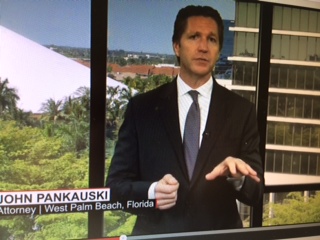Florida Trust Challenge: what is it?

To watch a FREE VIDEO about a Florida Trust Challenge, CLICK HERE. Trust lawsuits in Florida seem to be on the rise. That could be because Florida residents use POUR OVER WILLS that leave their money to a trust. Increasingly, these days wills are, in many ways, “just “a method to transfer property to a trust. Many times, a trust is the real entity that leaves inheritances. You may have a probate or an estate, but the REAL money is in the trust. Admittedly, beneficiaries can be concerned. After all, who is being put in charge of YOUR inheritance and millions of dollars? To read about a Florida Trustee Being Sued for Breach of Fiduciary Duty, CLICK HERE. To learn more about a Florida Trust Challenge, keep reading. Oh yes, here’s a tip. If you have a pour over will and there is a probate. Objecting to just the will may not be enough. You may have to file a second lawsuit. A Florida Trust Challenge.

Defining a Trust Challenge
“A Florida Trust Challenge is typically an attack on the validity of the trust” says Florida Trust Litigator John Pankauski. The attack can be on the entire trust, or just a part of it, like a specific inheritance. Sometimes, family members or beneficiaries file a challenge to who is going to be the trustee or successor trustee. To read about REMOVING A TRUSTEE or SUSPENDING A TRUSTEE, click on those links. But a trust challenge is often synonymous with a trust contest. Or an attempt to declare the trust void. A trust that is caused by such things as fraud, duress, undue influence are void. But, you need a Probate Court Judge to tell everyone that.
Understanding a Florida Trust Challenge: the first step
The first step to understanding a Florida Trust challenge is to read! John Pankauski, who had a week-long trust challenge trial in Palm Beach County just a few months ago, says to read the entire trust document. It will tell you what law applies, what the standards for distribution are and who the successor trustee might be. There also may be language about the trustee’s standard of care. Perhaps most importantly, it will tell you who the witnesses are to the trust that you want to challenge. And it may say who wrote the trust. Those are your most important witnesses. He also says to keeping reading. The next thing to read is the Florida Trust Code. The trust code identifies the players and tells you all about judicial proceedings. If you have heard Pankauski’s name before, it may be because he wrote Pankauski’s Trustees Guide. His book deals with serving as trustee of family trusts where he discusses trust challenges. The second step? Find an experienced, serious trust litigator. Most beneficiaries, even well-intentioned and bright ones, ca”n’t try a case like this. And watch out for probate or trust lawyers who say they go to court. Many don’t try cases. But that’s easy enough to find our, right? Just ask them how many trials they had in 2020 or 2019.
Learning the Back Story: the discovery phase of your trial
After you have read, you need to develop your facts to challenge the trust, or the action that you are concerned with. Was there a decision by the trustee that you believe harmed the trust? Remember, a breach of fiduciary duty claim is different than claiming the whole trust is void. Many times, family members who inherit under an older trust believe the next or last trust is invalid. And look out for restatements of trust, or amendments. Many times, there are changes to the trust. Sometimes these trust changes occur in the hospital or right before someone dies. Understandably so, beneficiaries who get cut out have questions. And family members want answers. Often, the last minute changes to a trust put new beneficiaries on the trust. And there are radical changes no one saw coming. That may be due to any number of suspicious factors. Or, it may be completely innocent. That’s why the discovery phase of a trust challenge is so important. Decide who you want to depose first. Draft or prepare written questions for people to answer UNDER OATH called interrogatories. Get your subpoenas ready. One of the first things you want is all the documents or the file of who ever wrote the trust that you are attacking. Prepare document requests. Gather facts. Evaluate evidence. Build your case. Set a strategy. Take your trust challenge to trial! To learn about a few good litigators who will take your trust challenge on a contingency fee, CLICK HERE.